Explore the Best of East Africa: Your Essential Guide to Travel to Kenya
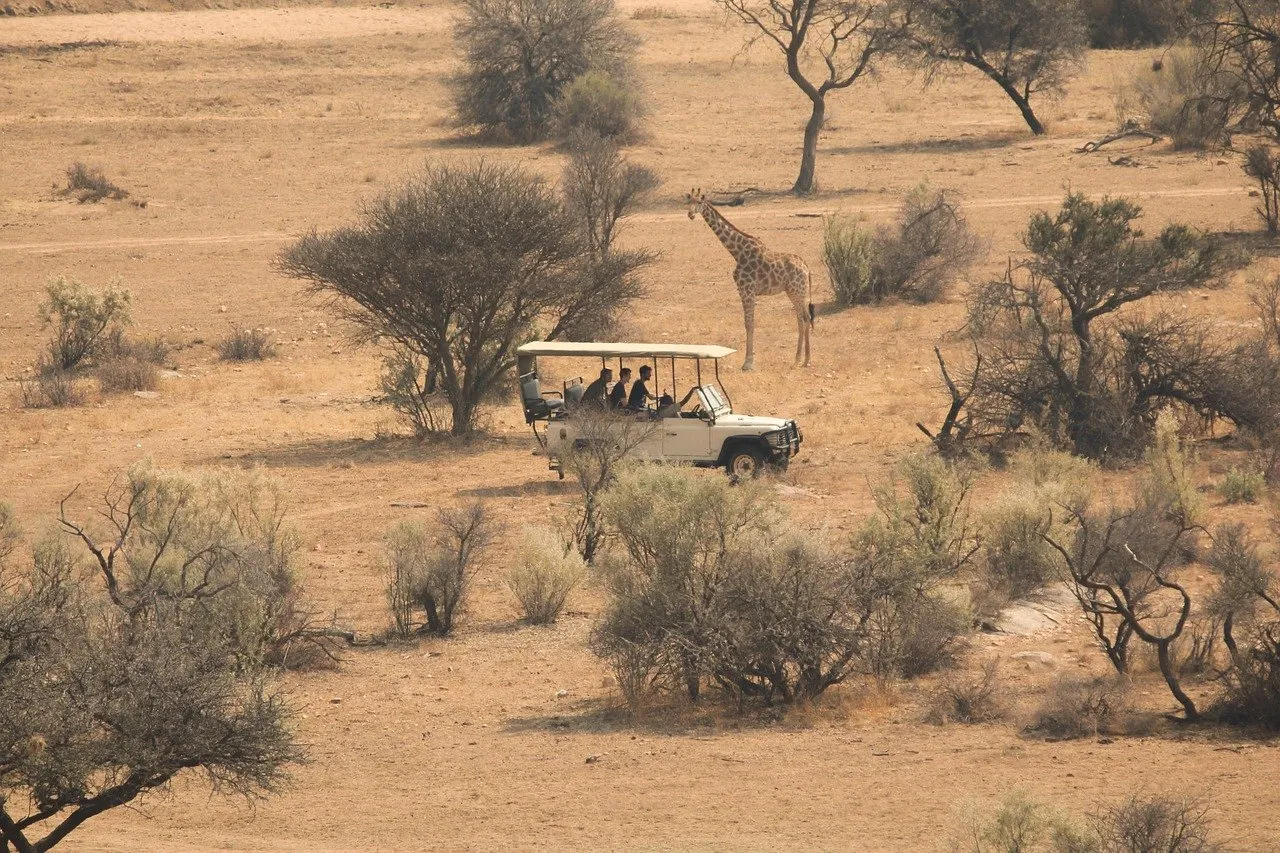
You’ll want to read this Kenya travel guide if you’re planning to travel to Kenya. In it, you’ll find all the essential information needed to plan a successful trip to Kenya. From the most enchanting destinations to visit to where to stay, what to eat, and the best times to visit, we tell it all.
Why You Need to Book a Safari With Us
At Kenya Luxury Safari we are dedicated to providing you with an extraordinary and authentic safari experience. We understand that a safari isn’t just a vacation, it is a journey of discovery, a chance to connect with nature, and an opportunity to create lifelong memories.
Whether you dream of witnessing the Great Migration in the Masai Mara, encountering the Big Five in the Amboseli, or exploring the untamed beauty of the Kenyan coast, we have just the package for you.
So what are you waiting for? Call… to book your African safari today!
Also Check Out Some of our Best Selling Safaris
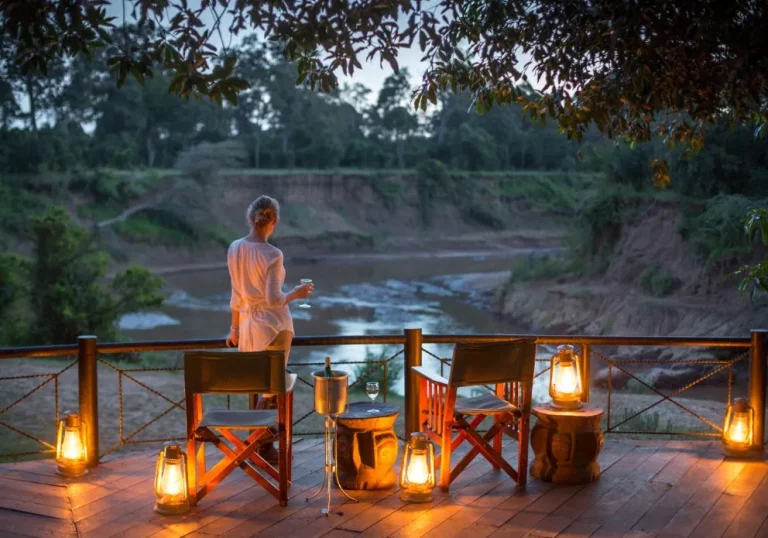
4 Days Big 5 Safari in Lake Nakuru and Masai Mara
From £1,042
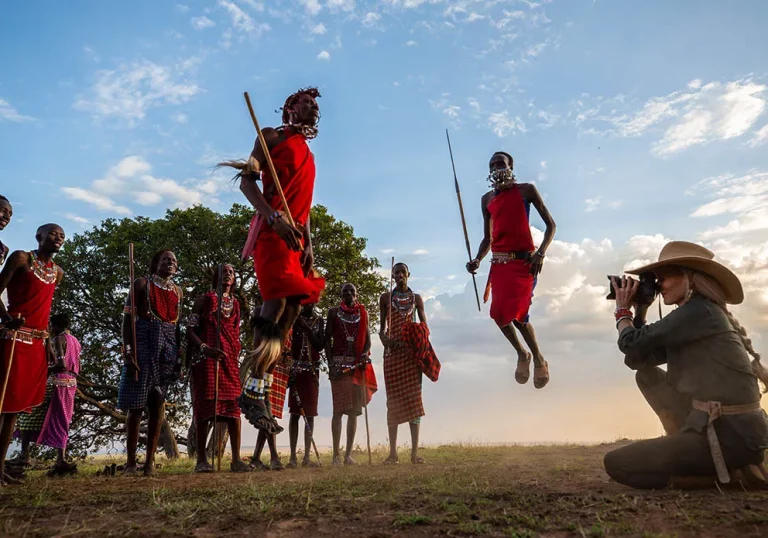
A Relaxed, All-Inclusive 6 Days Safari in Kenya
From £1,748

7-Days Safari to Kenya’s Most Breathtaking Destinations
From £1,846
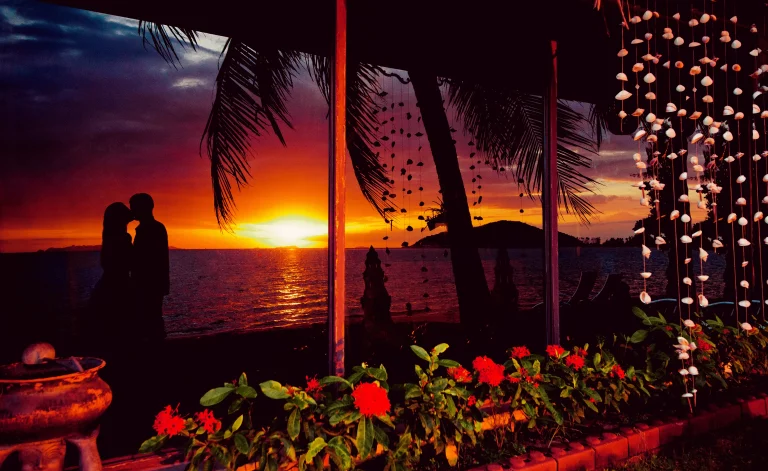
7-Day Honeymoon Safari: This is All the Magic You Need
From £1,678
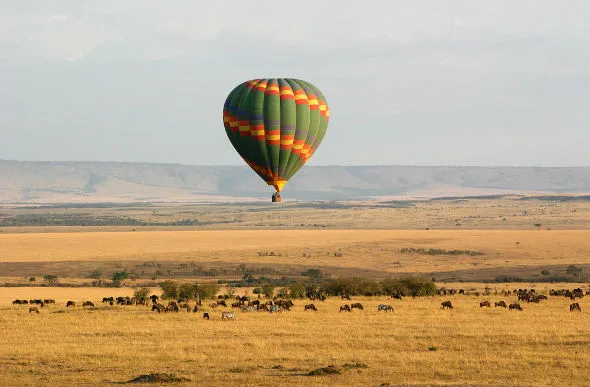
8-Day Safari in Kenya - A Holiday with Purpose
From £2,053
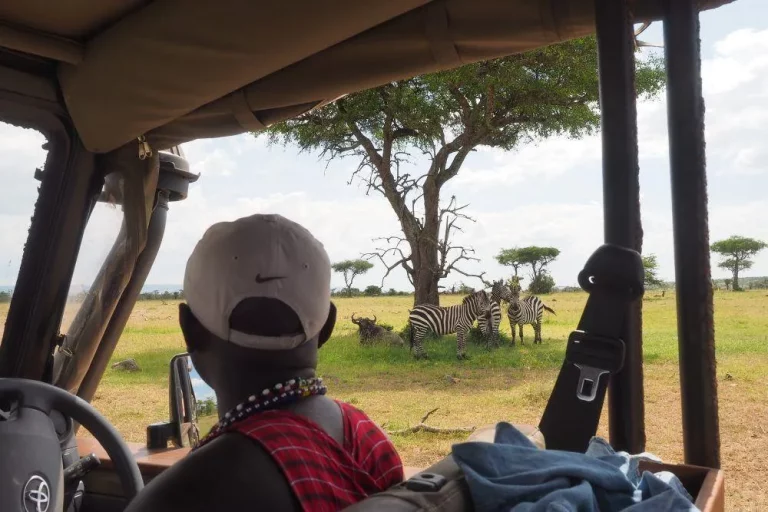
9-Day Helicopter Safari: An Exclusive Look into Kenya’s Finest
From £15,365
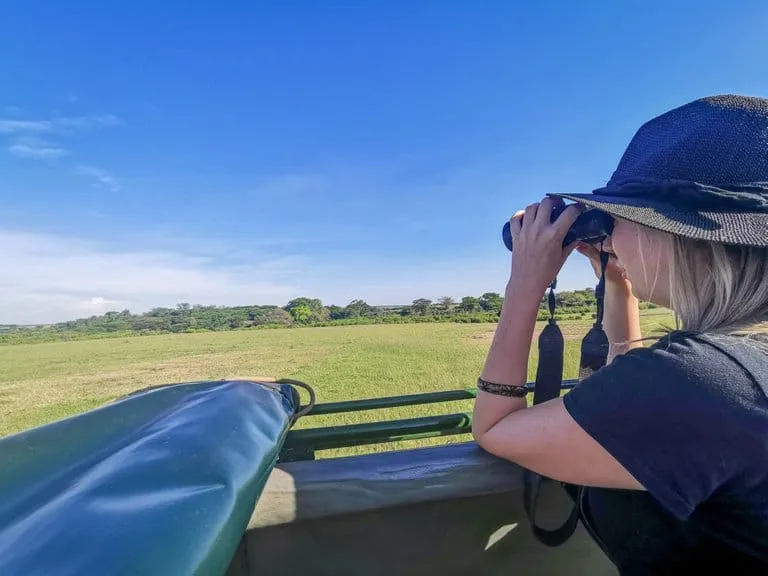
12-Day Kenya Safari and Beach Holiday - A Dream Vacation
From £3,141
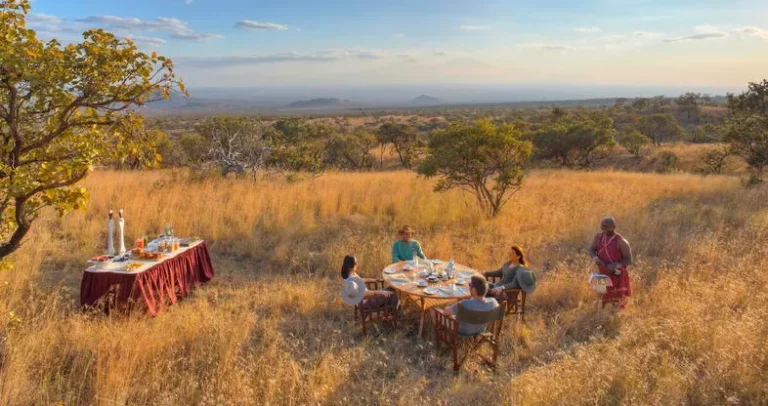
14-Day, Wildlife and Beach Honeymoon Safari
From £4,815
Executive Summary
- Travelers to Kenya should obtain an eVisa in advance, ensure they have a valid passport, stay updated on entry conditions, and adhere to health recommendations, including necessary vaccinations.
- The best time to visit Kenya is during the dry months between June and October. These months offer spectacular animal viewing opportunities. The Great Migration in the Maasai Mara also falls within these months.
- Kenya is home to a great variety of accommodations ranging from luxury lodges to budget campsites.
Video Overview: Tips for Those Travelling to Kenya
Kenya Awaits: Essential Travel Tips
Here are a few things to keep in mind before setting foot on Kenyan soil.
- An electronic travel authorization (eVisa) is mandatory for all visitors. To apply for an eVisa;
- Visit this website and click on ‘Create eVisa account’
- Log in and select ‘Department of Immigration Services’.
- Submit your application
- Select ‘Kenyan Visa’
- Select the type of visa you need and read the instructions carefully
- Fill in the application form
- Pay using your Visa card or MasterCard.
- Wait for your visa application to be approved (or rejected).
- Make sure your passport has at least six months of validity and at least two blank pages
- Keep abreast of the latest entry and exit conditions as they can shift with little notice.
When it comes to your health, here are a few things to keep in mind:
- Consult the CDC’s Travelers’ Health website for up-to-date vaccination recommendations, health precautions, and travel advice.
- If your travels have taken you through areas where yellow fever thrives, proof of vaccination may be required for entry.
Discover the Wonders of Kenyan Safaris
A Kenya safari is a feast for the senses, offering a tapestry of breathtaking landscapes, diverse wildlife, and vibrant cultures. It is an opportunity to witness the raw beauty of Africa and create lifelong memories.
In the next section, we highlight some of Kenya’s most iconic tourist attractions.
The Great Migration in the Maasai Mara
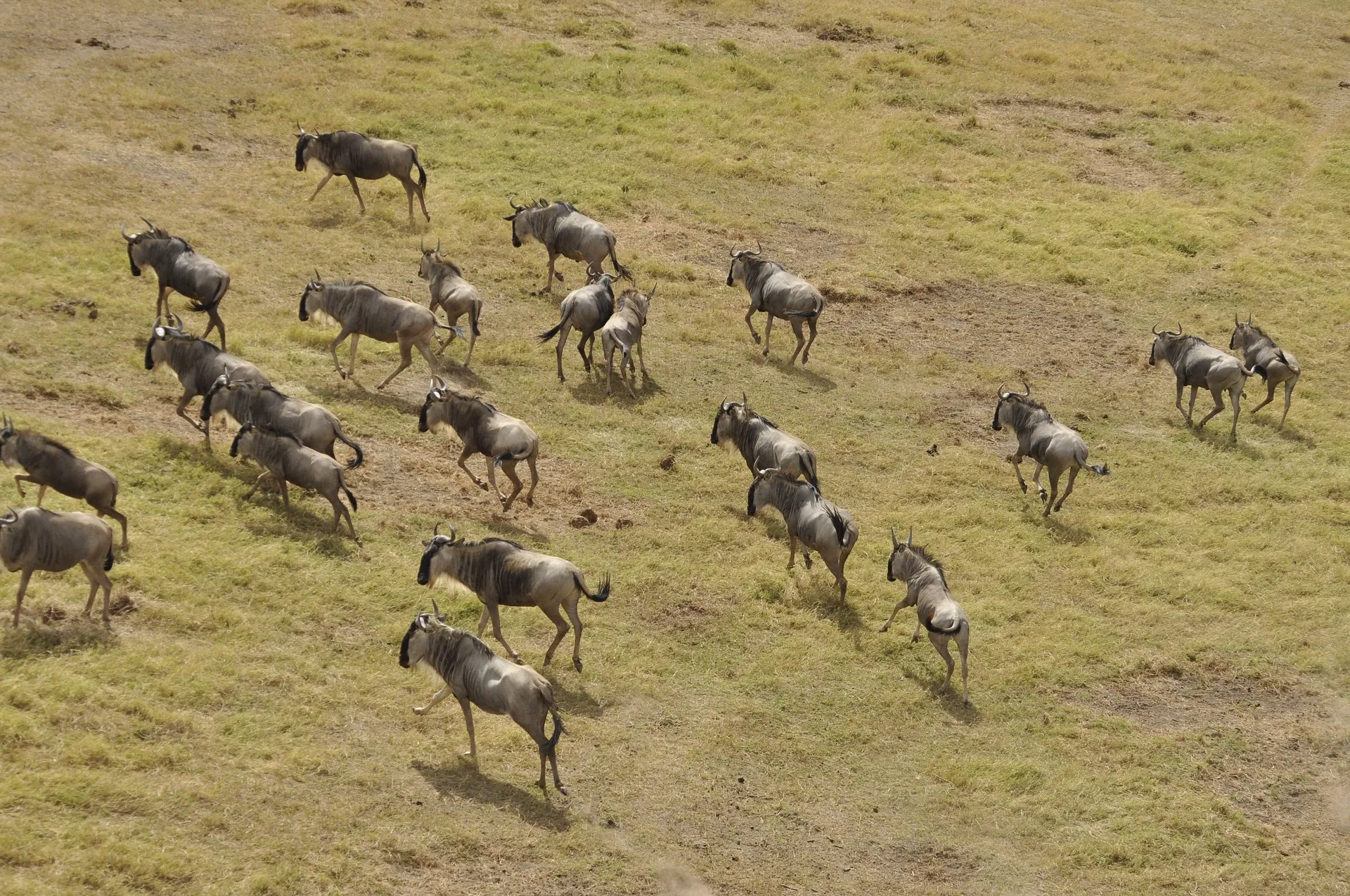
The Masai Mara National Reserve is home to one of the planet’s most awe-inspiring spectacles – the Great Migration. During the migration, over two million wildebeest, zebra, and other herbivores traverse the plains in a relentless pursuit of sustenance. Witnessing this marvel, particularly the perilous crossing of the Mara River, is an experience that captures the raw essence of survival and the unyielding will of nature.
To get the most out of your Great Migration experience, plan your African safari between July and September. During this time the savannah vegetation is dry, making wildlife visibility easier.
Majestic Elephants of Amboseli
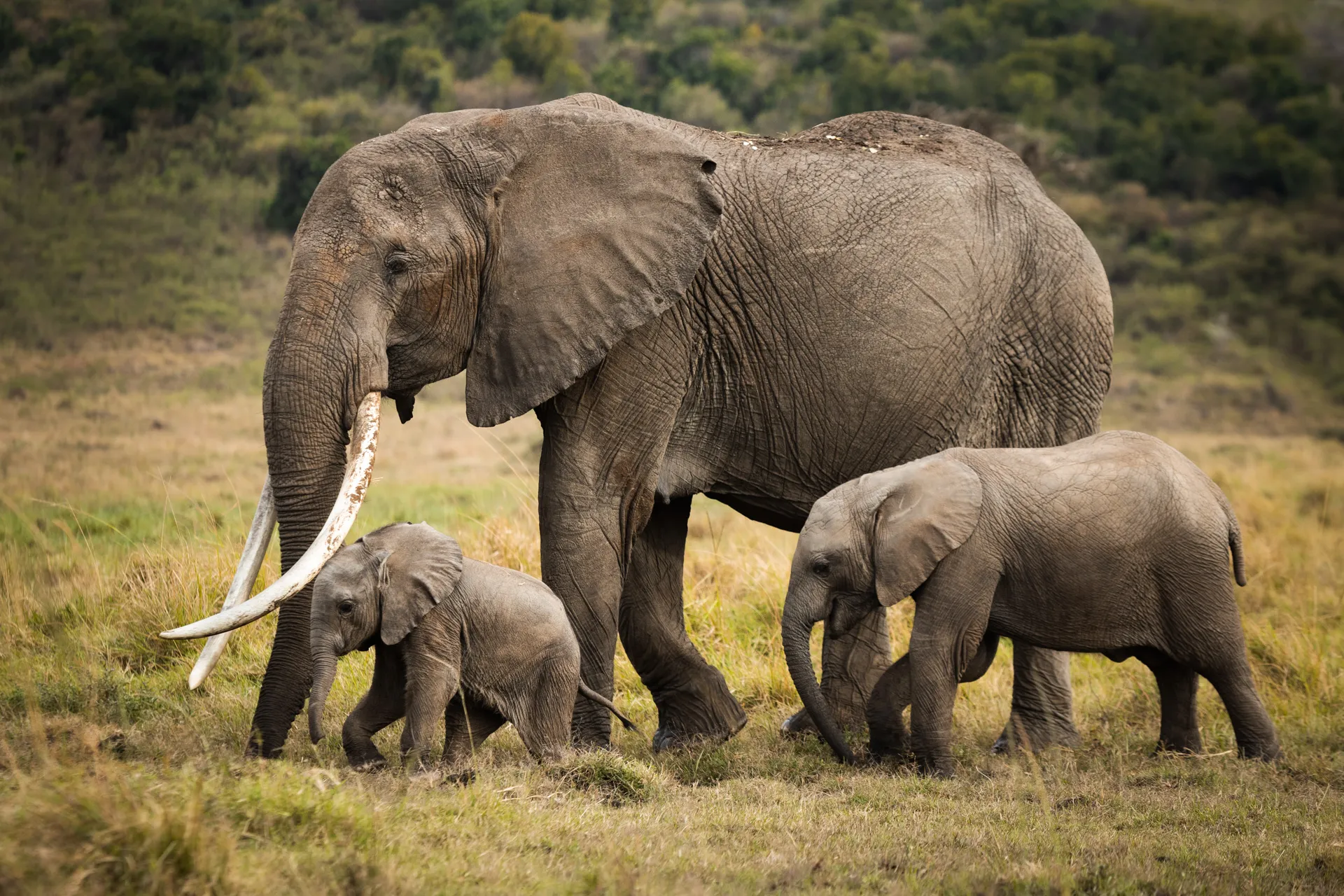
In the shadow of Mount Kenya, lies the phenomenal Amboseli National Park which serves as a sanctuary to some of the most studied elephants in Southern and Eastern Africa Here, you can observe these majestic creatures, each with a unique story chronicled in the world’s longest, continuously-running elephant study.
Their intricate social structures and gentle demeanor against a backdrop of Africa’s iconic peak make for a safari experience that is both humbling and exhilarating.
Conservation Safaris: Protecting Kenya’s Wildlife
It might please you to know that when you go on a safari to Kenya you are not only treating yourself to a phenomenal display of Mother Nature but also actively contributing to the safeguarding of some of the country’s rarest wildlife species.
A good chunk of the money you spend on park entry fees is channeled back to protecting rarities such as the Nothern White Rhinos (Ol Pejeta). Also, some of the safari lodges you stay in have initiatives focused on giving back to the local community.
Coastal Escapes Along the Indian Ocean
Nothing prepares you for the utter bewilderment that comes with the Kenyan coastline. You see, the Kenyan coastline is a treasure trove of idyllic beaches, coastal resorts, and marine sanctuaries. Mombasa, for example, is a whirlwind of activity with its expansive resorts and vibrant shorelines like Kilifi Beach. We also have Lamu, where the safari spirit seamlessly blends with the laid-back beach lifestyle, and Watamu for those whose souls yearn for aquatic adventures.
These spots are not only stunning but they also promise thrilling activities such as scuba diving, snorkeling, and enigmatic attractions like ancient coral ruins and verdant forest reserves.
Diving and Snorkeling at Watamu

Dive into the crystalline depths at Watamu National Marine Park and Reserve, a world-class underwater realm that ranks among Kenya’s finest diving destinations. The park’s coral gardens, a mere stone’s throw from the shore, are a kaleidoscope of marine life, welcoming novice divers and snorkelers to explore its splendors. While diving conditions peak from August to mid-April, snorkeling is a year-round invitation to marvel at the ocean’s bounty.
Seasoned divers will find their adrenaline fix amongst Watamu’s outer reef, within the Watamu Marine National Park, with challenging dives through drop-offs, caves, and the thrill of night dives. Home to over 600 species of fish and an array of corals, the reef is also a stage for large pelagic species like whale sharks and manta rays, especially during the plankton-rich months of December through February. Even the migration of humpback whales can be observed, adding to the park’s allure.
With 20 named sites, including the accessible Shakwe Wreck, Watamu’s dive sites promise an aquatic adventure for every level of diver.
Relaxation and Culture on Lamu Island
Lamu Island, a mosaic of Swahili culture, is a haven of relaxation, where life’s pace is dictated by the gentle winds that guide the dhows along the coastline. Here, cultural sensitivity is key – adopting a conservative dress code is a sign of respect for the local, predominantly Muslim community.
The island’s secluded beaches are havens of privacy, inviting you to unwind in an atmosphere far removed from the typical tourist trail. For a touch of indulgence, luxury accommodations such as The Majlis Resort offer an elevated sense of calm, nestled on the serene shores of this cultural jewel.
Adventure Awaits: Trekking and Climbing in Kenya
Kenya’s dramatic landscapes are not just a backdrop for wildlife; they are a playground for adventurers. Walking safaris on these landscapes offer an intimate exploration of the country’s natural beauty, a chance to tread softly through the wilderness, observing the minutiae of the bush. While Kenya’s national parks may have restrictions, conservancies and private lands welcome trekkers with open arms, offering experiences that resonate with the soul of exploration.
From the Laikipia Plateau, with its vast open spaces, to the rugged terrain of the Kalama Wildlife Conservancy, these landscapes inspire walking safaris that are as diverse as they are awe-inspiring.
Come, book a walking safari with us. and get a chance to;
- wander along river trails
- pause beside waterfalls
- journey through forests
- and enjoy expansive views of places like Sosian Lodge and Elephant Pepper Camp in the Mara North Conservancy.
Safety Tips
As you weave your Kenyan tapestry of experiences, staying safe and informed is paramount. Here are some tips to help you stay safe:
- Maintain a high level of vigilance, especially in Nairobi and Northern Kenya as well as other areas where a terrorist attack or violent crime can occur with little or no warning.
- Avoid regions on the Kenya-Somalia border, including parts of Lamu County, Tana River County (North Kenya), and Kilifi County (North Kenya) where the danger of kidnapping and terrorist attacks by notorious terrorist groups such as Al Shabaab is all too real.
- Opt for secure tourist resorts and steer clear of nocturnal wanderings to minimize the risk of carjackings, kidnappings, and home invasions.
- To stay informed about potential risks, monitor local media for updates on security situations, political gatherings, and travel advisories.
- Be wary of scams, particularly those involving individuals posing as officials, and steer clear of tours to areas like Nairobi’s Kibera slum, where security concerns and ethical considerations are pressing.
- Kenya can experience natural disasters such as floods. tsunamis, and earthquakes. Know the warning signs and safety precautions to take.
- For your personal safety, keep your belongings close, especially in crowded areas, and avoid walking alone after dark. Also make sure to report to local authorities nearby when and if you fall victim to any violent crime
- To ensure a safe and enjoyable experience, seek local advice when planning your activities. You can also enlist the help of any reputable tour operators.
- Those who enter Kenya with flu-like symptoms will be required to take a COVID-19 test at their own expense. If the test comes back positive, they might be require to isolate. For more information on this, please visit the Kenya Civil Aviation Website.
- When on wildlife safaris, make sure to follow park regulations. These include not feeding animals, respecting the privacy of animals, and littering.
- Last but not least, make sure you get travel insurance before leaving for Kenya. Talk to your insurance company and get insurance that covers emergency services like medical evacuation
Kenyan Laws and Customs
For a seamless, trouble-free time in Kenya, we advise all our clients to research local Kenyan law (and customs) before traveling. Although this list is not exhaustive, it features some of the most important ‘must-knows before traveling to Kenya.’
- Smoking is prohibited in all public areas in Kenya except in designated smoking areas.
- Although Kenyan locals do not adhere to any strict dress code, ensure to dress conservatively when you are away from tourist areas and resorts to avoid offending local sensitivities.
- Local laws dictate that trafficking illegal drugs is a crime that carries a 10-year jail sentence
Accommodation Options for Every Traveler
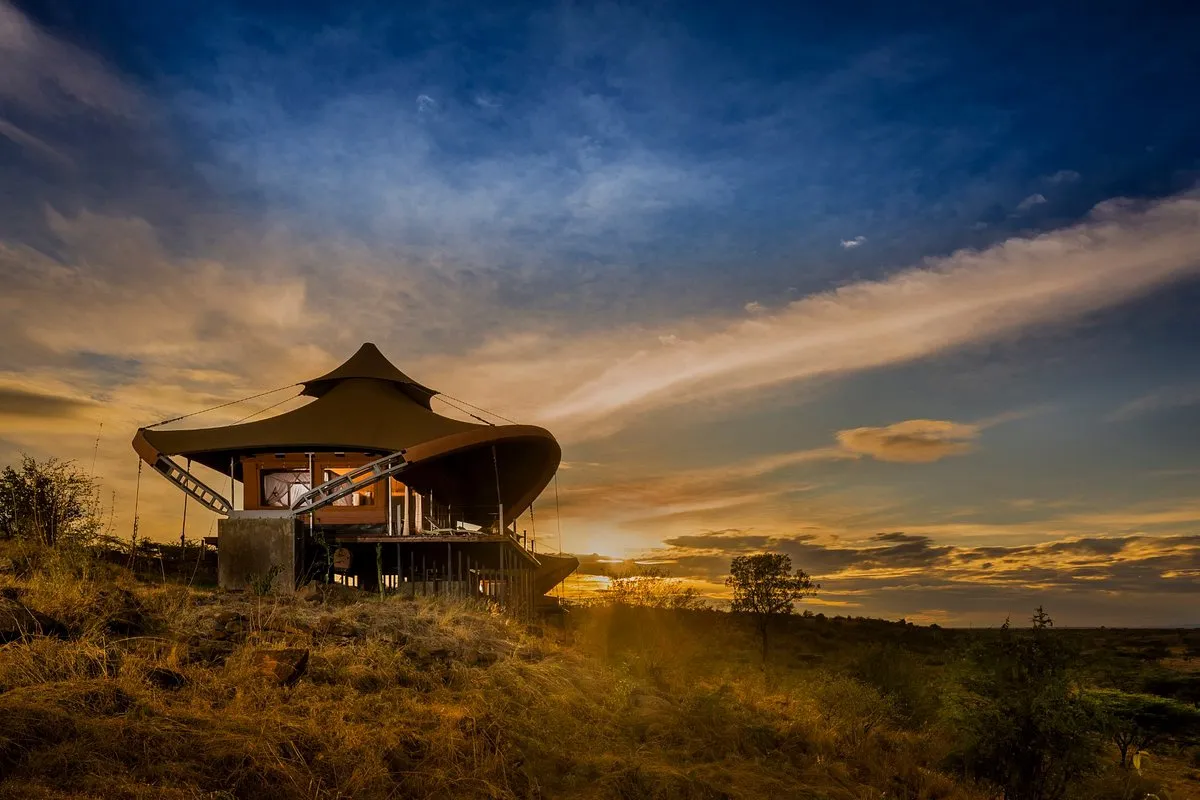
In Kenya, accommodation can be as diverse as the day’s adventures. Accommodations range from the simplicity of budget-friendly campsites and guesthouses to the opulence of luxury lodges and boutique tented camps.
High-end lodges in the game parks not only offer panoramic views and game-viewing decks but also come with amenities that might rival those found in more metropolitan settings. Tented camps, on the other hand, marry the adventurous spirit of camping with the comforts expected from more traditional accommodations, featuring plush beds, en-suite bathrooms, and, in some cases, electricity.
Mid-range hotels cater to a variety of preferences, ensuring that there’s a fit for every traveler, whether you seek the charm of yesteryear or the sleekness of modern design. Gourmet meals prepared by skilled chefs, often using organic produce, add a luxurious touch to upscale lodges and camps, even in the most remote locations. For those who crave connectivity, Wi-Fi is widely available, though it may be limited in certain remote areas.
Finally, for a more independent and culturally immersive experience, consider a homestay or a self-catering accommodation like an apartment, villa, or cottage, particularly popular in coastal regions. Local media can provide valuable information on such options.
P.S. Seasonal pricing patterns mean that the time of your visit may sway the cost of your stay, but some establishments offer the consistency of year-round rates
Cultural Insights: Embracing Maasai Culture and Beyond
Kenya’s cultural landscape is as rich as it is diverse. The Maasai, known for their distinctive red attire and intricate beadwork, are emblematic of Kenya’s vibrant cultural tapestry. Their warrior class, the Morans, epitomizes the tribe’s strength and resilience, undergoing extensive survival training that speaks to their deep connection to the land. Beyond the Maasai, the Lamu Archipelago offers a glimpse into the area’s Swahili architecture and trading history, where conservative Muslim culture prevails alongside stunning Moorish and Swahili-style beach houses.
When visiting, a little effort in learning some Swahili, the dominant language along the coast, goes a long way, as does dressing modestly to show respect for local customs, especially on islands like Lamu. Embracing these cultural nuances enriches your travel experience, allowing for a deeper understanding and appreciation of the communities that make Kenya so unique.
Planning Your Trip: Best Times and Transportation
Timing is everything when planning your Kenyan escapade. Align your visit with nature’s calendar to experience the full splendor of events like the Great Migration in the Maasai Mara, best from July to October. While the ‘long rains’ of April and May might dampen travel plans to some extent, they can also bring about cheaper deals and a more intimate experience with fewer tourists.
On Lamu Island, embrace the local pace of life, where donkeys and traditional dhows are the primary means of transport, offering authentic experiences like sunset cruises and island exploration.
Savoring Kenyan Cuisine: A Taste of Local Flavors
The Kenyan palate is a fusion of textures and tastes that reflect the country’s rich cultural heritage. Ugali, a simple yet staple dish made from cornmeal, is the foundation upon which many Kenyan meals are built, often served with stews and soups. Traditional dishes like Irio or mukimo weave together potatoes, corn, and greens, offering a hearty accompaniment to barbecued meats.
From street vendors to sophisticated restaurants, the flavors of Kenya are bold and inviting. Sukuma wiki, a dish of sautéed greens, is a nutritious side dish that’s as common as it is beloved. For a more robust option, Githeri combines beans, corn, and meat in a rich tomato and beef gravy, seasoned with local spices that warm the soul.
The country’s take on barbecue, Nyama Choma, is a celebration of the grill, with slow-cooked meats, typically goat, that are tender and infused with smoky goodness. And for those with an adventurous palette, Mutura offers a taste of local culinary tradition, a sausage-like delicacy that is as unique as it is flavorful.
Whether you indulge in the creamy, coconut-infused Kuku Paka or start your day with the sweet, doughnut-like Mandazi, Kenyan cuisine promises a journey for your taste buds that’s as memorable as any safari.
Responsible Tourism: Respecting Wildlife and Communities
As visitors to this beautiful land, it is our duty to tread lightly and embrace the principles of responsible tourism. By choosing to support tourism that benefits the Maasai and other local communities, we help preserve cultural traditions and contribute to sustainable livelihoods. Being generous with tips for service staff such as guides and hotel personnel is not just courteous; it’s a direct investment into the local economy.
While the allure of interacting with the local population, especially children, can be strong, it’s essential to engage with communities in ways that are respectful and beneficial. This includes avoiding touristic visits to schools, which can disrupt students’ education, and approaching opportunities to volunteer with vulnerable children through vetted channels that ensure the community’s best interests are safeguarded.
Summary
Kenya offers a kaleidoscope of experiences, from the pulse-quickening spectacle of the Great Migration to the serene retreats along the Indian Ocean. The adventure of a Kenyan safari, the cultural immersion among the Maasai, and the culinary delights of local cuisine all weave together to form a vibrant tapestry of travel. Whether scaling the heights of Mount Kenya or diving into the depths of Watamu’s coral reefs, the spirit of Kenya is boundless. With responsible tourism at the heart of your travels, you can contribute to the preservation of this remarkable country for future generations to savor. So pack your bags, embrace adventure, and let Kenya move you.
Frequently Asked Questions
Is Kenya a cheap country to visit?
No, Kenya is generally not considered a budget-friendly destination due to higher accommodation and safari costs, as well as pricier national park entrance fees compared to neighboring countries.
Can US citizens travel to Kenya?
Yes, US citizens can travel to Kenya with a valid passport that has at least two blank pages and six months of validity.
What do I need to know about visa requirements for visiting Kenya?
To visit Kenya, you need to obtain an eVisa beforehand, and ensure your passport has at least six months’ validity and two blank pages available.
When is the best time to witness the Great Migration in Kenya?
The best time to witness the Great Migration in Kenya is from July to October, during the dry season, for clear views of the migrating herds.
Are there any cultural practices I should be aware of when visiting Kenya’s coastal regions?
When visiting Kenya’s coastal regions, it’s important to respect local customs, especially in predominantly Muslim areas like Lamu Island. Dressing conservatively and learning a few phrases in Swahili can show respect for the local culture.
